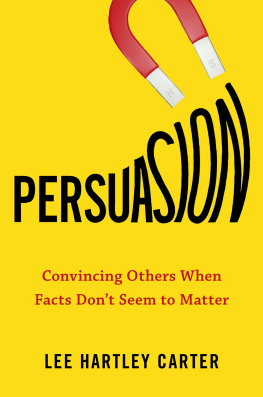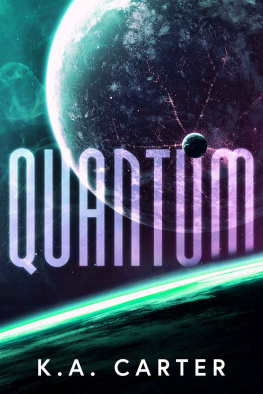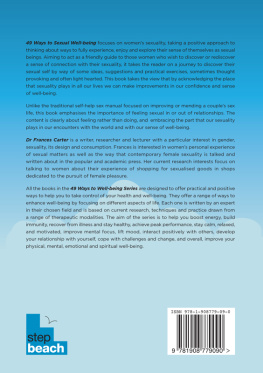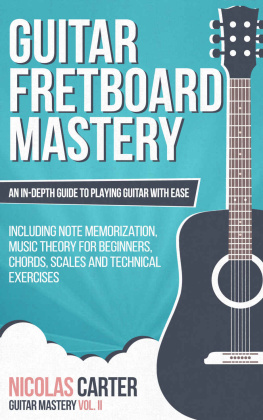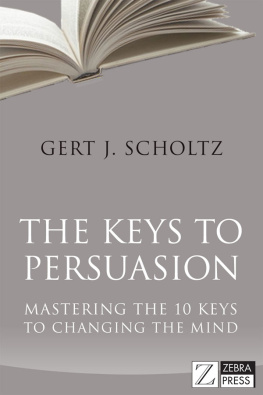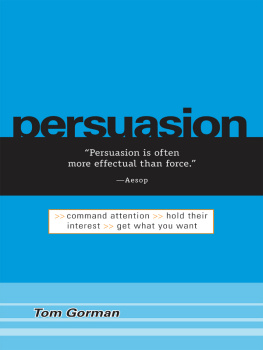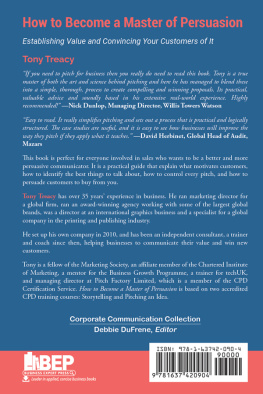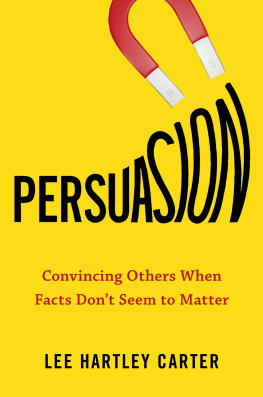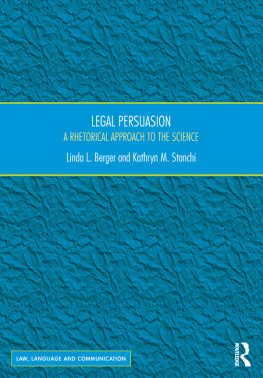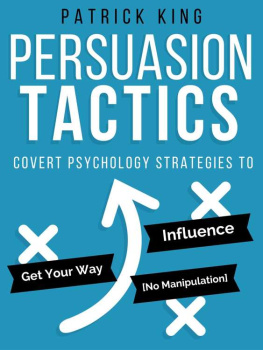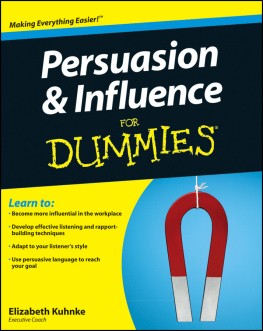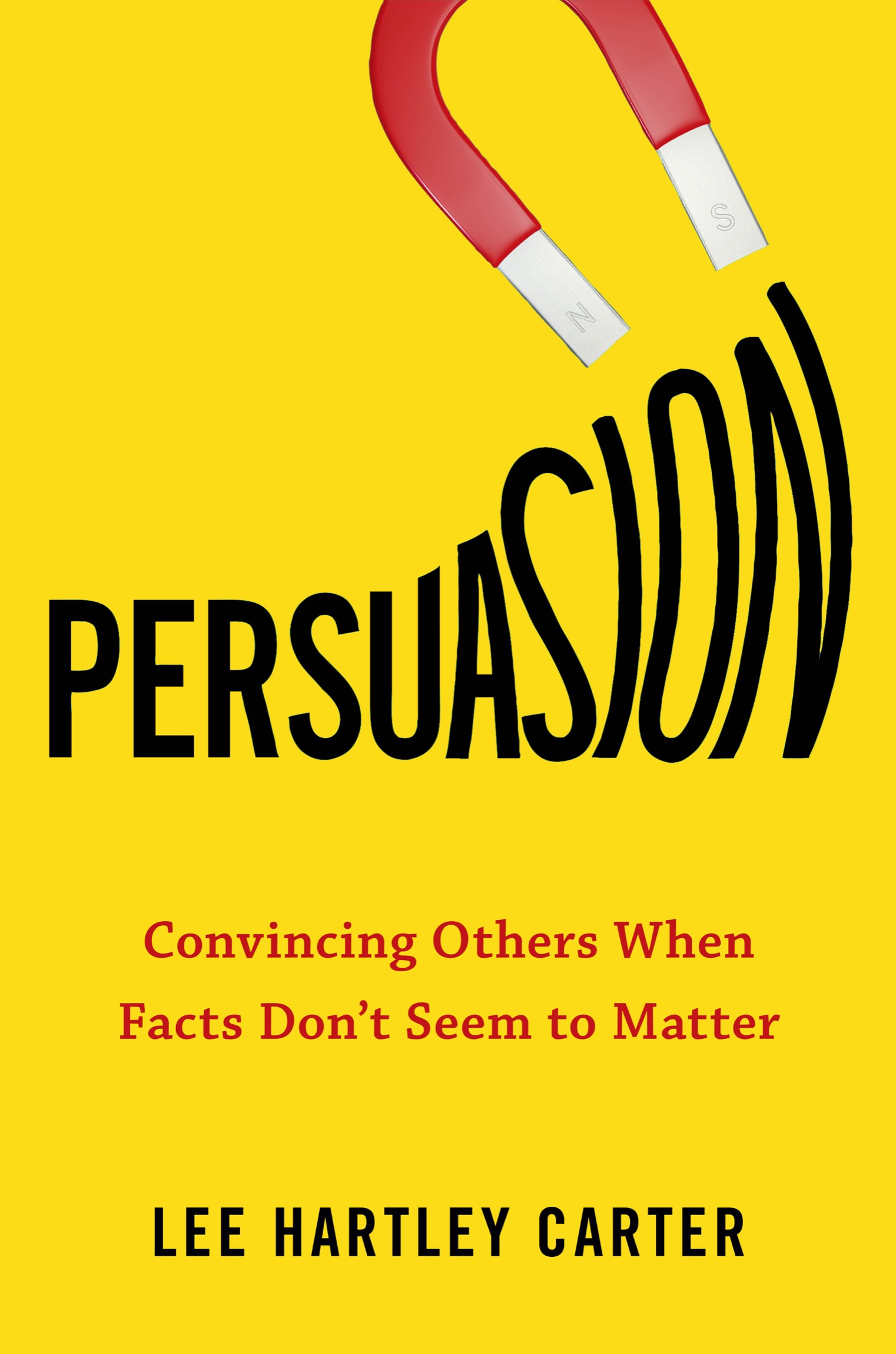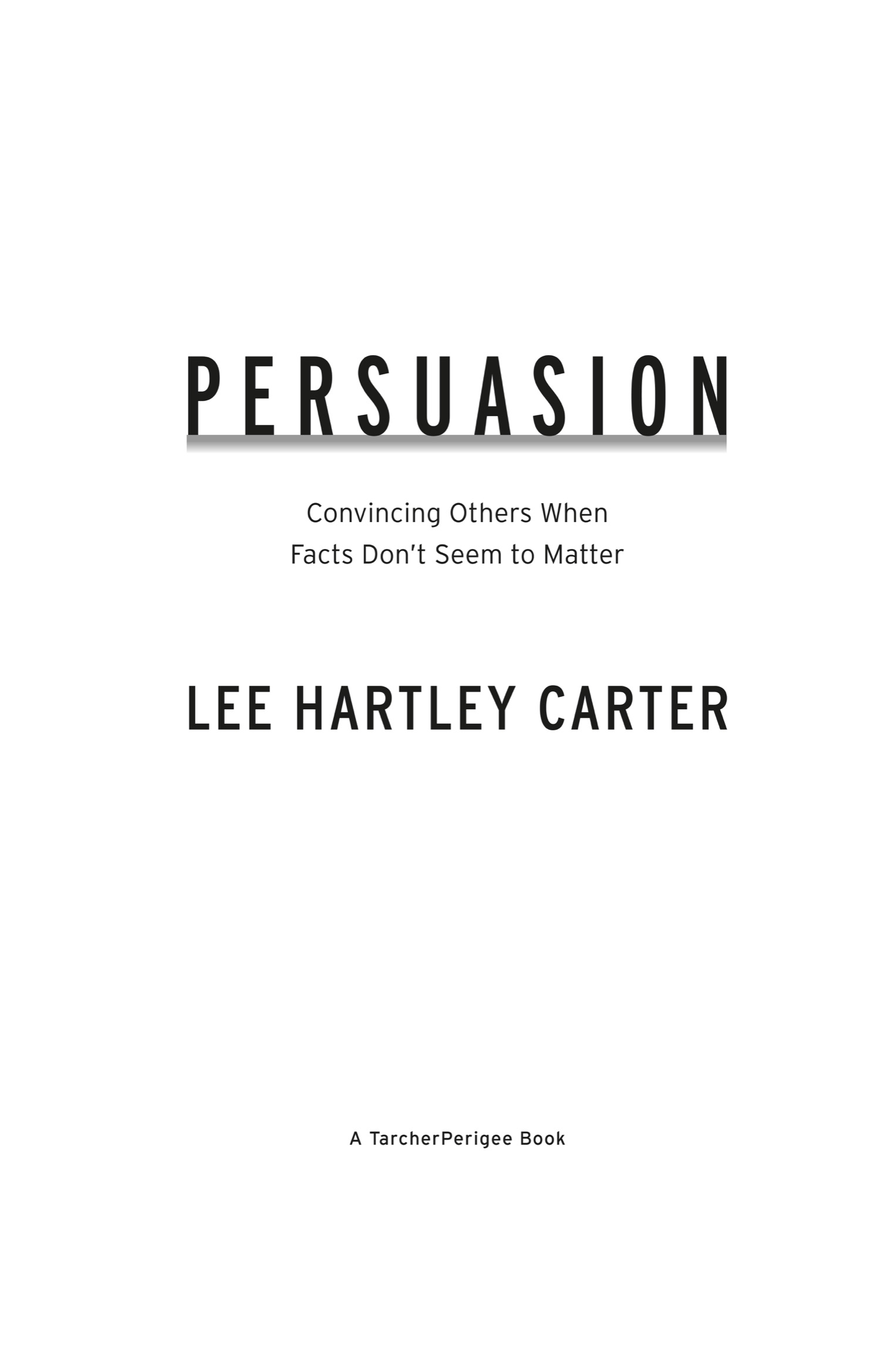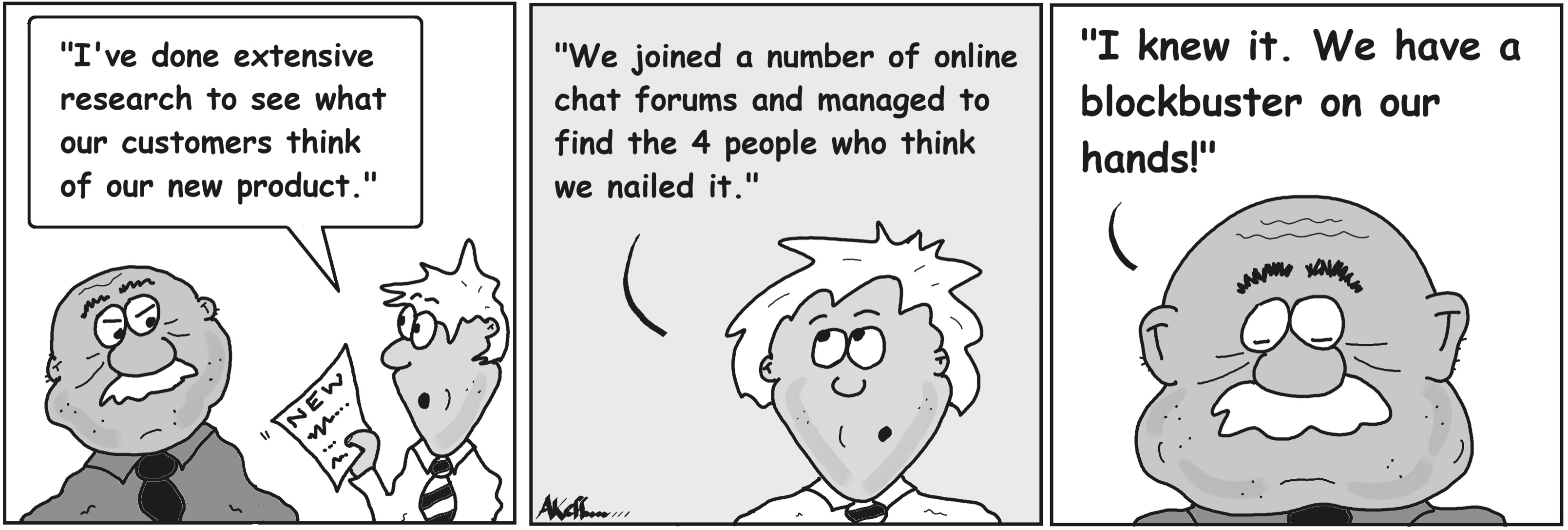Advance Praise for Persuasion
Everyday life is filled with situations that require the art of persuasion. From negotiating a raise to selling a product. From winning a political debate to getting your kids to do their homework. In every situation, you can choose how to approach the other person and what language to use. Lee Carter gives you a road map to making choices that will help you get what you want. Through real-world examples and extensive research, she has created simple tools that you can put to use to win hearts and minds.
Effective communication starts with the ability to empathize deeply with your audience. In Persuasion, Lee explains what empathy is, why it matters, and how to use it to craft persuasive messages. Filled with examples and case studies, this book takes complex concepts and makes them easy to understand, and readily applicable to everyday life.
Michael Maslansky, CEO, maslansky + partners, and author of Language of Trust
I cant think of a time when understanding the art and science of persuasion was more important than right now. This book is academic in its comprehensive approach. Its practical in how the reader can and should benefit from every lesson. Its so loaded with essential insight that I put my highlighter down after the first chapterthere was yellow on every page. As an occasional competitor, I shouldnt admit this, but the Persuasion Plan Workbook is so essential to effective communication that I plan to steal it and use it for my clients immediately.
Dr. Frank I. Luntz, author of Words That Work
As this engaging book makes clear, what we have in common is often much more powerful than the differences that divide us. Building empathy and trust, rather than trying to be right, offers a path toward positive changeon an individual level and for our culture at large.
Scott Barry Kaufman, PhD, host of The Psychology Podcast and author of Transcend
Dont let the title fool youthis book is as much about listening as it is talking. Lee Carter explains how if you want someone to listen to you, you have to start by listening to them. If you want to know how to shift someones mind-set, this practical book will help you see that the key ingredient is actually empathy.
J. Stuart Ablon, PhD, associate professor at Harvard Medical School and author of Changeable
As Lee Carter rightly points out, nobody today can afford to be a persuasion amateur. The very connections that sustain us and the aspirations that elevate us are at stake. Fortunately, she has created this smart playbook for a more effective, and far more human, approach to communication.
Matthew DiGirolamo, chief communications officer, LOral USA
In the world of politics, Lee sees the entire playing field. This book will teach you to tell your story for maximum impact.
Mitchell M. Roschelle, partner at PricewaterhouseCoopers
In this compelling book, Lee gives us a road map for how to climb out of the empathy chasm. For people who long to find the place of commonality where meaningful change can happen, this is the book.
Sharon Callahan, CEO, TBWA\Worldhealth
In Persuasion, Lee Carter puts a science behind the art of persuasion. She gives clear instruction on how to effect change through communication. Everyone from CEOs to schoolteachers, parents to pastors, will find this book deeply helpful. Many of the largest corporations in the world hire Lee Carter to help them communicate effectively. In Persuasion, she shares her best advice with us. If you want to communicate in a way that leads to change, read this book and apply it.
J. Josh Smith, pastor of Prince Avenue Baptist Church and author of Preaching for a Verdict

an imprint of Penguin Random House LLC
Penguinrandomhouse.com
Copyright 2019 Lee Hartley Carter
Penguin supports copyright. Copyright fuels creativity, encourages diverse voices, promotes free speech, and creates a vibrant culture. Thank you for buying an authorized edition of this book and for complying with copyright laws by not reproducing, scanning, or distributing any part of it in any form without permission. You are supporting writers and allowing Penguin to continue to publish books for every reader.
Library of Congress Cataloging-in-Publication Data
Names: Carter, Lee Hartley, author.
Title: Persuasion: convincing others when facts no longer seem to matter / Lee Hartley Carter.
Description: [New York, NY] : TarcherPerigee, [2019] | Includes bibliographical references and index.
Identifiers: LCCN 2019010664| ISBN 9780143133476 (hardcover) | ISBN 9780525505273 (ebook)
Subjects: LCSH: Persuasion (Psychology) | Public relations.
Classification: LCC BF637.P4 C38 2019 | DDC 153.8/52dc23
LC record available at https://lccn.loc.gov/2019010664
p. cm.
This publication is designed to provide accurate and authoritative information in regard to the subject matter covered. It is sold with the understanding that the publisher is not engaged in rendering legal, accounting, or other professional services. If you require legal advice or other expert assistance, you should seek the services of a competent professional.
Version_5
To my family, without whom nothing is possible
And to D, you were there from the start
CONTENTS
INTRODUCTION
WHEN FACTS DONT MATTER
Today, on the news and in social media, there is much bemoaning that facts no longer matter. By that, people mean that in a world where we have alternative truth and truthiness and consistent falsehoods being disseminated, facts no longer have the power to change minds. But I have to let you in on an industry secret: they never did.
In 1972, after news of the Watergate break-in made headlines, Richard Nixon still won reelection by a landslide because the facts at the time were open to interpretation. Just three years later, researchers at Stanford did the first study proving that people cling to their irrational opinions, even in the face of irrefutable evidence that they are wrong. The hundreds of studies that followed prove that people actually dig their heels in when presented with facts that contradict their beliefs. If you want to change minds, facts alone have never been enough.
The reasons are rooted in behavioral science. At a biological level our brains arent hardwired to look for facts. Instead we rapidly and automatically process opinions we agree with as if they are facts. In the study Thats My Truth: Evidence for Involuntary Opinion Confirmation, researchers Michael Gilead, Moran Sela, and Anat Maril showed not only that our opinions are change-resistant, but that we actually involuntarily reject facts that contradict our existing opinions.
To compound this, all humans suffer from confirmation bias. We search for information that confirms our opinions. And we cherry-pick the facts that support our point of view. Here is a cartoon that really gets to the heart of this.
Our desire to confirm our existing beliefs also leads us to minimize or ignore data that doesnt fit our preferred view of the world. We can quickly dismiss factual information that does not agree with our worldview by labeling the new facts as somehow erroneous or limited. Said another way (shamelessly stealing from a former colleague): when confronted with facts that dont fit inside our frame, we throw away the facts and keep the frame (which is easier and less ego-threatening than getting a new frame).

